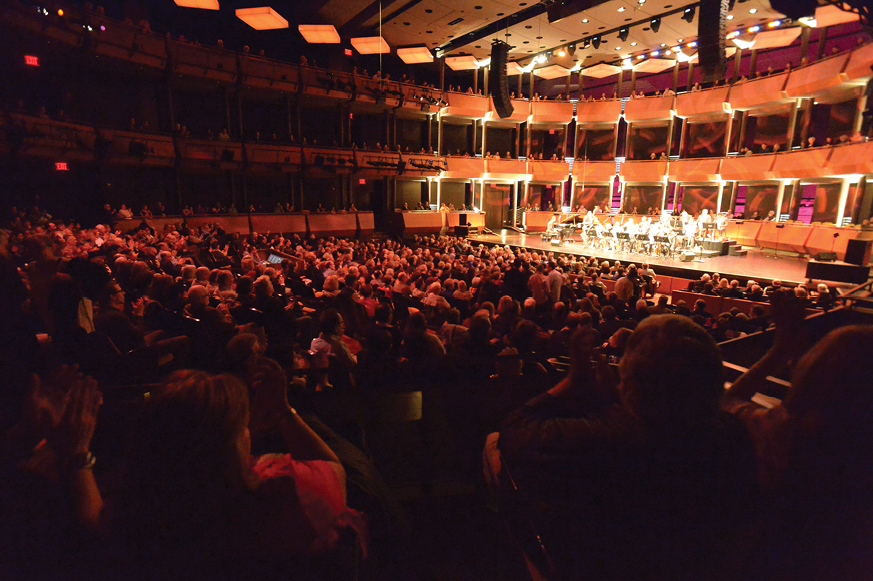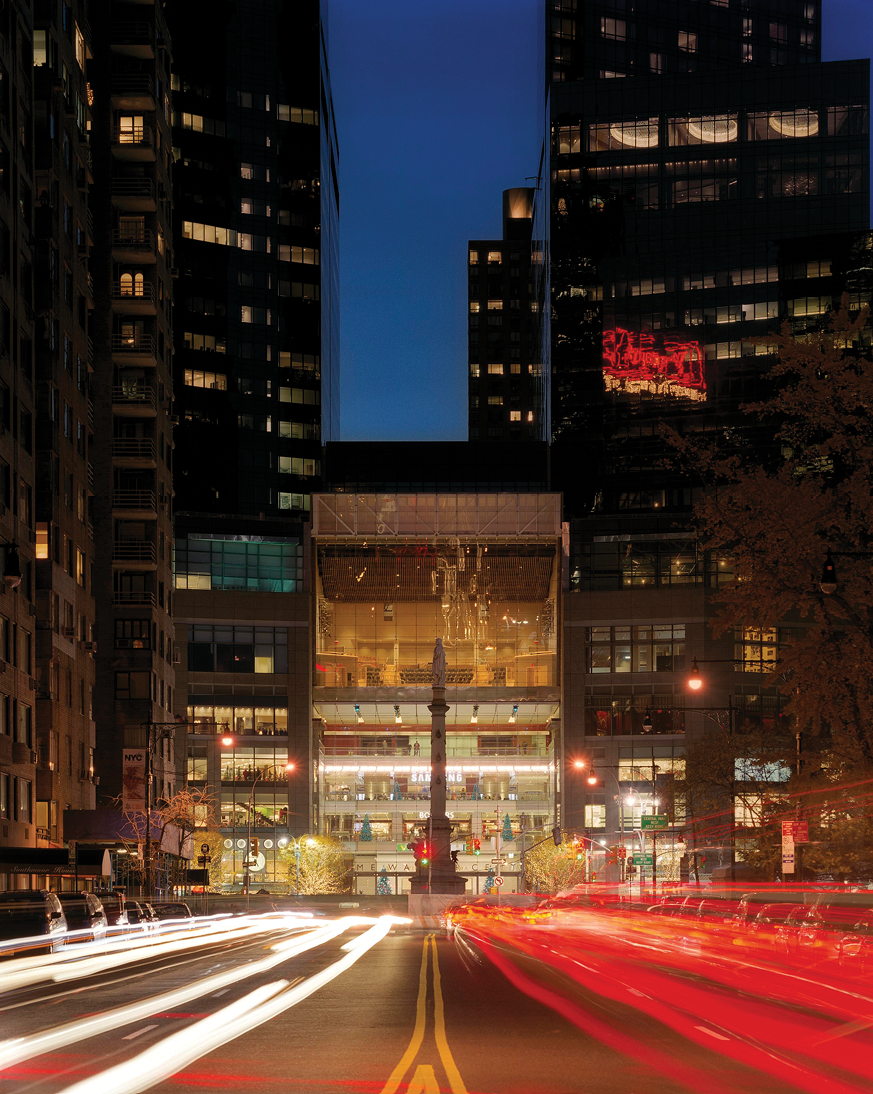- Home
- Media Kit
- Current Issue
- Past Issues
- Ad Specs-Submission
- Ad Print Settings
- Reprints (PDF)
- Photo Specifications (PDF)
- Contact Us

![]()
ONLINE


Wynton Marsalis
The Art of the Invisible
Editors’ Note
Wynton Marsalis is an internationally acclaimed musician, composer and bandleader, educator, author and a leading advocate of American culture. He has created and performed an expansive range of music from quartets to big bands, chamber music ensembles to symphony orchestras, and tap dance to ballet, expanding the vocabulary for jazz and classical music with a vital body of work that places him among the world’s finest musicians and composers. Marsalis has produced over 100 records which have sold over seven million copies worldwide including three Gold Records and he has won nine Grammy Awards. In 1997, Wynton Marsalis became the first jazz musician ever to win the Pulitzer Prize for Music for his epic oratorio Blood On The Fields. In 1987, he co-founded a jazz program at Lincoln Center. In July 1996, due to its significant success, Jazz at Lincoln Center (jazz.org) was installed as a new constituent of Lincoln Center, equal in stature with the New York Philharmonic, Metropolitan Opera, and New York City Ballet – a historic moment for jazz as an art form and for Lincoln Center as a cultural institution. In October 2004, with the assistance of a dedicated Board and staff, Marsalis opened Frederick P. Rose Hall, the world’s first institution for jazz. The JALC mission is to entertain, enrich and expand a global community for jazz through performance, education and advocacy, and to bolster the cultural infrastructure for jazz globally. Marsalis’ core beliefs and foundation for living are based on the principles of jazz. He promotes individual creativity (improvisation), collective cooperation (swing), gratitude and good manners (sophistication), and faces adversity with persistent optimism (the blues). Honorary degrees have been conferred upon Marsalis by more than 30 of America’s leading academic institutions. He was honored with the Louis Armstrong Memorial Medal and the Algur H. Meadows Award for Excellence in the Arts. He was inducted into the American Academy of Achievement and was dubbed an Honorary Dreamer by the “I Have a Dream Foundation.” The New York Urban League awarded Marsalis with the Frederick Douglass Medallion for distinguished leadership and the American Arts Council presented him with the Arts Education Award. Time magazine selected Marsalis as one of America’s most promising leaders under age 40 in 1995, and in 1996 celebrated Marsalis again as one of America’s 25 most influential people. In November 2005, Marsalis received The National Medal of Arts, the highest award given to artists by the United States Government. United Nations Secretary-General Kofi Annan proclaimed Marsalis an international ambassador of goodwill for the United States by appointing him a UN Messenger of Peace. Marsalis was honored with The National Humanities Medal by President Barack Obama in 2015, in recognition of his work in deepening the nation’s understanding of the humanities and broadening American citizens’ engagement with history, literature, languages and philosophy. Marsalis has also received numerous international awards including France’s highest distinction, the insignia Chevalier of the Legion of Honor.

Jazz at Lincoln Center’s Frederick P. Rose Hall
Where did your passion for music develop?
I was not interested in music until I was about twelve years old when I started to really listen to musicians like John Coltrane and I started to ask myself if I might ever be able to play music like they did. Listening to some of the great jazz musicians of the time built my interest and passion for music.
How do you define the mission of Jazz at Lincoln Center and will you highlight the services it provides?
Our mission is to entertain, educate and advocate for a global audience in an effort to grow and build jazz music. We put on concerts of all kinds around the world and have been able to introduce a number of talented young artists and to recognize some of the older musicians as well. We also collaborate with other artists of all genres as well as other forms of art such as dance with Alvin Ailey, as well as plays, and we do this all over the world, from South Africa to China to Japan and so on. We have a large education program and do jazz classes for people of all economic levels and we educate around jazz’s distinct American heritage. We also advocate for jazz and have jazz ambassadors who represent our music. We support other jazz organizations and try to help as much as we can.
We believe jazz is a metaphor for Democracy. Because jazz is improvisational, it celebrates personal freedom and encourages individual expression. Because jazz is swinging, it dedicates that freedom to finding and maintaining common ground with others. Because jazz is rooted in the blues, it inspires us to face adversity with persistent optimism.
“We believe jazz is a metaphor for Democracy.”
What were you hoping to accomplish with your most recent album, The Ever Fonky Lowdown?
The Ever Fonky Lowdown is a blueprint and when you listen to it you will hear a lot of symbolic language. It’s about what happens when you are living within an illusion that is so heavy that you can’t get out of it. It raises questions like, “Who am I fighting and why?” The libretto is dark, but the music that goes along with it is kind of happy. The composition takes the listener through a series of games with a protagonist named Mr. Game.
The Ever Fonky Lowdown also manifests itself in the consumption of damaging mythology about African Americans. It plays on how you think, what you think, and the mythology you’re given. You’re given this mythology, all these movies and shows, saying Black people commit crimes. Black people call each other the “n” word. Black people call each other bitches. Everybody lives in drug-infested communities, everybody shoots this, they don’t have any respect, every Black person has no integrity. You could have a movie with one Black person in it, and that Black person is the one with no integrity. That’s just mythology and if you buy into that, that’s the ever fonky lowdown.

The exterior of the Jazz at Lincoln Center building at
Columbus Circle on Manhattan’s Upper West Side
Is the album meant to be uplifting and to provide hope and optimism?
Since, as I mentioned, I created The Ever Fonky Lowdown as a blueprint, it is about diagnosing the problems and how to address them. It is similar to when you go to a doctor. You go to receive a diagnosis so you can then treat the problem. You need to identify the problem in order to address it. In the album, the protagonist, Mr. Game, becomes the hero in the end. You are left with the message that while we have many problems, we have many qualified people to handle them, and it will take everyone to win the fight – this is the fonky lowdown. The music for the album is really celebratory. The album is meant for everyone, people in power, people without power, people with money, poor people, young people and old people. I am not interested in reaching a particular group, I am interested in reaching all human beings.
What do you see as the role that music can play in addressing the challenges and crises the world is facing?
Music is the art of the invisible. It deals with all things relating to the mind - thoughts, memories, dreams, aspirations. If you think about the American Negro experience, think about songs like “We Shall Overcome” and “Amazing Grace.” If you think about Dr. Martin Luther King, Jr. and his Opening Address to the 1964 Berlin Jazz Festival when he said, “Jazz speaks for life. The Blues tell the story of life’s difficulties, and if you think for a moment, you will realize that they take the hardest realities of life and put them into music, only to come out with some new hope or sense of triumph.” Jazz music plays a critical role in our history and in shining a light on the challenges we are facing and the need to come together to overcome them.
How critical is resilience for a musician?
It is critical. I tell my students at Juilliard all the time that it is an uphill battle. It is not easy, but musicians are resilient people and they persevere and move forward to overcome challenges and setbacks.![]()